
More Helpful Content
Navigating the complexities of international logistics can be a real headache for merchants, and figuring out how to ship from Vietnam to Japan is no exception! With a tangle of regulations, varying costs, and multiple shipping methods, it's easy for merchants to feel overwhelmed.
Deely aware of that, EFEX - the leading service provider for eCommerce fulfillment & express, put together this comprehensive guide to simplify the process and help you sail smoothly across borders. Here's what we'll cover:
So, let's not waste any more time and dive right into the details!
Shipping goods from Vietnam to Japan might seem like navigating uncharted waters, but once you know the route, it's smooth sailing! Here's a quick step-by-step guide to give you a clear picture of the entire process:
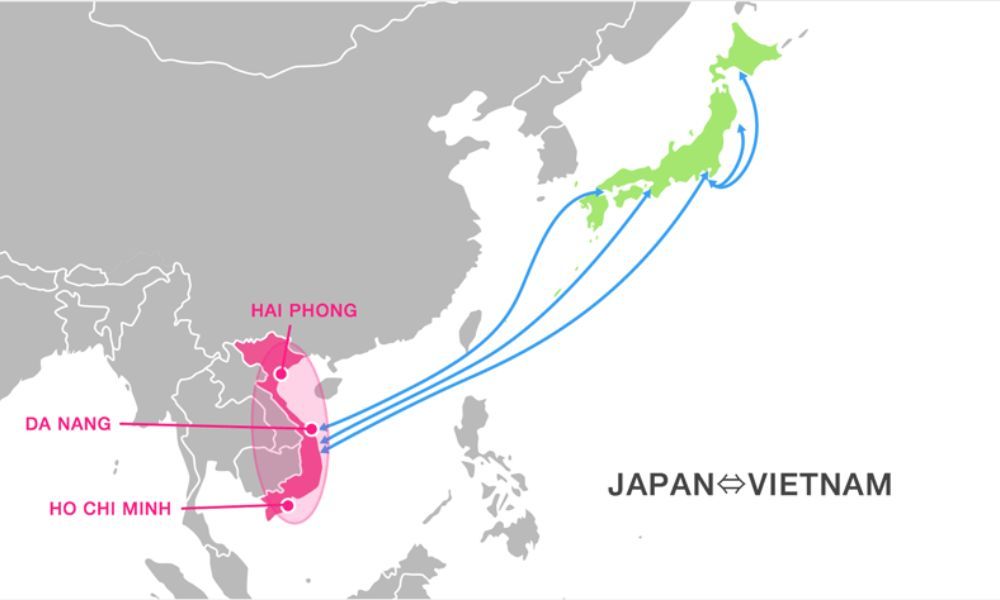
By following these steps, you're well on your way to successfully shipping from Vietnam to Japan. Each step is crucial, and we'll explore them thoroughly in the upcoming sections. So, stay tuned as we break down the process and equip you with all the tips and insights you need!
Now that we've outlined the steps to ship your goods from Vietnam to Japan, it's time to chart the course by selecting the optimal shipping method. This decision is pivotal—it influences your costs, delivery speed, and even how you pack your goods. Much like choosing the right vehicle for a road trip, picking the appropriate shipping method ensures your cargo arrives safely and efficiently from Vietnam to Japan.
Let's dive into the main options, weaving together their advantages and drawbacks to help you make an informed choice.
After considering the urgency of your shipment, air freight might just be the jet-set solution you need. It involves transporting your goods via airplanes, making it the fastest shipping method available between Vietnam and Japan. If you're aiming to get your products on store shelves or into customers' hands swiftly, taking to the skies is your best bet.
| Pros | Cons |
|
|
All things considered, air freight from Vietnam to Japan is suitable for:
With air freight, you're paying for speed and reliability—ideal when every minute counts.
On the other hand, sea freight involves sending your goods across the ocean via cargo ships. If you're willing to trade a bit of speed for significant savings, sea freight might be your vessel of choice for shipping from Vietnam to Japan.
| Pros | Cons |
|
|
Therefore, sea freight from Vietnam to Japan is your ideal choice if you are shipping the following:
All in all, sea freight is your go-to when cost savings are paramount, and you have the luxury of time.
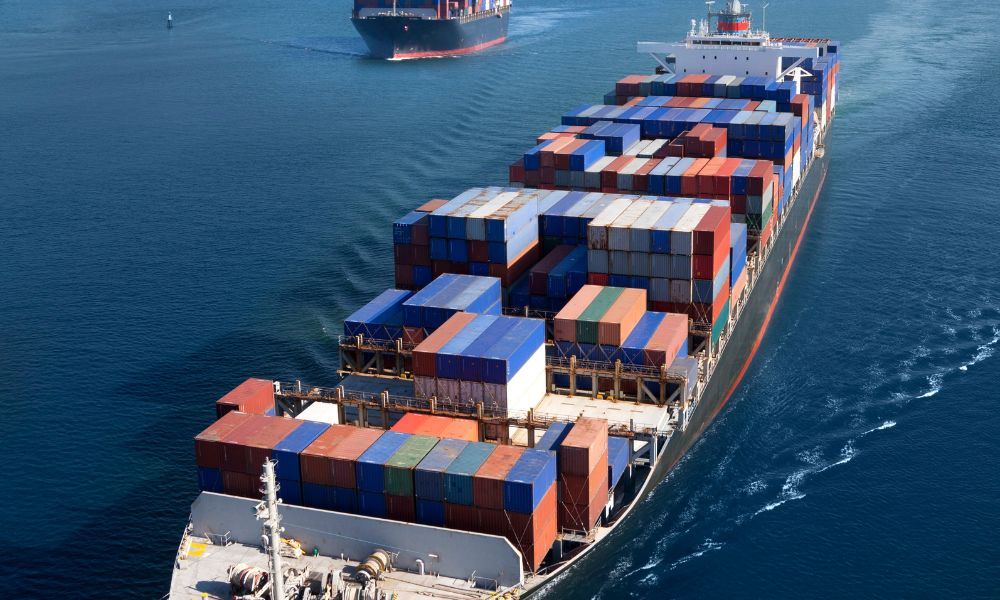
For those seeking convenience and end-to-end service, courier services offer a compelling package. Courier companies like DHL, FedEx, and UPS provide door-to-door delivery, handling everything from pickup to final drop-off. They simplify the process by managing customs clearance and offering tracking every step of the way.
| Pros | Cons |
|
|
Courier services are perfect when you want a hassle-free experience and your shipment fits within their size parameters. It is:
Selecting the right shipping method is a balancing act between speed, cost, and convenience. By aligning your priorities with the features of each method, you ensure your goods reach Japan just as you intended.
We've just charted our course, let's get down to the nuts and bolts of shipping: the costs and timeframes. After all, no one likes surprise fees or delays, and understanding these factors is crucial for budgeting and setting realistic expectations! Now, let's crunch the numbers and see what impacts your shipping expenses and delivery times when sending goods from Vietnam to Japan.
Several elements come into play when determining how much you'll pay and how long it will take for your shipment to reach Japan. Here's what you need to consider:
As we've explored, your choice between air freight, sea freight, or courier services significantly influences both cost and delivery time.
Shipping rates are often calculated based on the actual weight or volumetric weight (size) of your cargo—whichever is higher. If you are shipping heavier or bulkier shipments, it’s more cost-effective to ship from Vietnam to Japan via sea freight. On the other hand, air freight or courier services are more suitable for lighter or compact shipments.
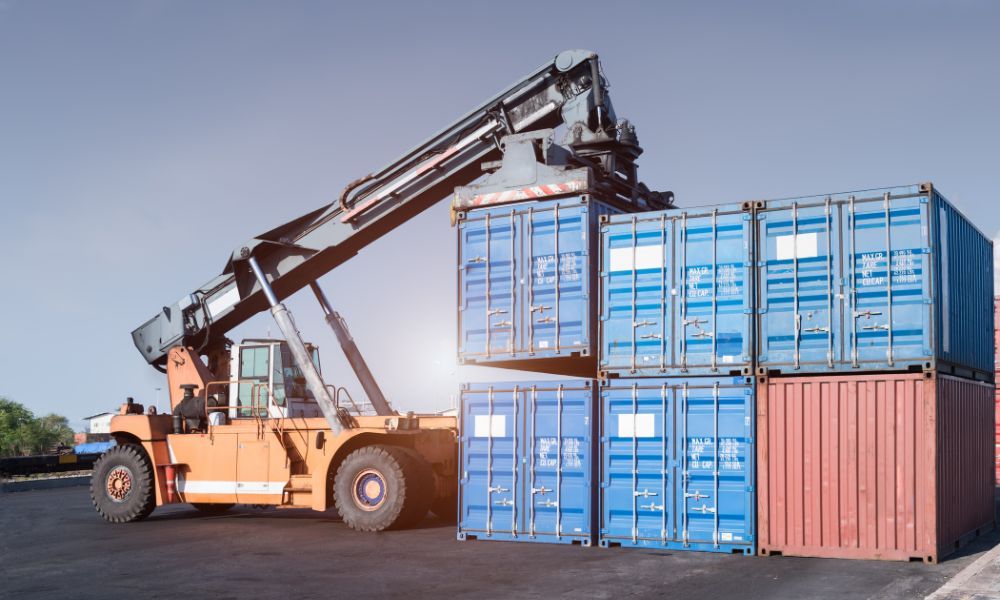
While Vietnam and Japan are relatively close neighbors in Asia, the specific origin and destination points can affect costs and transit times. Shipping to and from well-connected hubs like Ho Chi Minh City and Tokyo can be quicker and cheaper, while remote locations may incur additional inland transportation costs and longer delivery times.
Next, it’s also worth noting that shipping cost from Vietnam to Japan can fluctuate based on the time of year. On holidays like Lunar New Year or Golden Week in Japan, shipping rates can spike and there might be delays due to high demand. On the contrary, during off-peak periods, you’ll generally see lower costs and faster processing times.
Delays and additional costs can arise if your shipment faces issues during customs clearance. Duties and taxes when importing from Vietnam to Japan can add to your total costs, so remember to properly prepare documentation in advance to avoid storage fees and ensure smoother processing.
Besides, if you are opting for extra services such as insurance, expedited shipping, or special handling, these will decrease your total shipping time from Vietnam to Japan, and at the same time, increase your overall expenses.
To give you a ballpark figure, here's what you can expect when shipping from Vietnam to Japan:
Please note that these estimations can vary based on currency fluctuations, fuel surcharges, and specific service providers. Therefore, always request detailed quotes from multiple shipping companies from Vietnam to Japan to get the best deal.
When it comes to shipping from Vietnam to Japan, one important step you should not miss is to dive into the customs regulations. After all, the last thing you want is for your carefully planned shipment to run aground due to overlooked legalities! Understanding and complying with both Vietnam's and Japan's customs requirements is essential to avoid delays, unexpected fees, or even the seizure of your goods.
Before your goods can leave Vietnam, they must comply with the country's export regulations, which require the following documents:
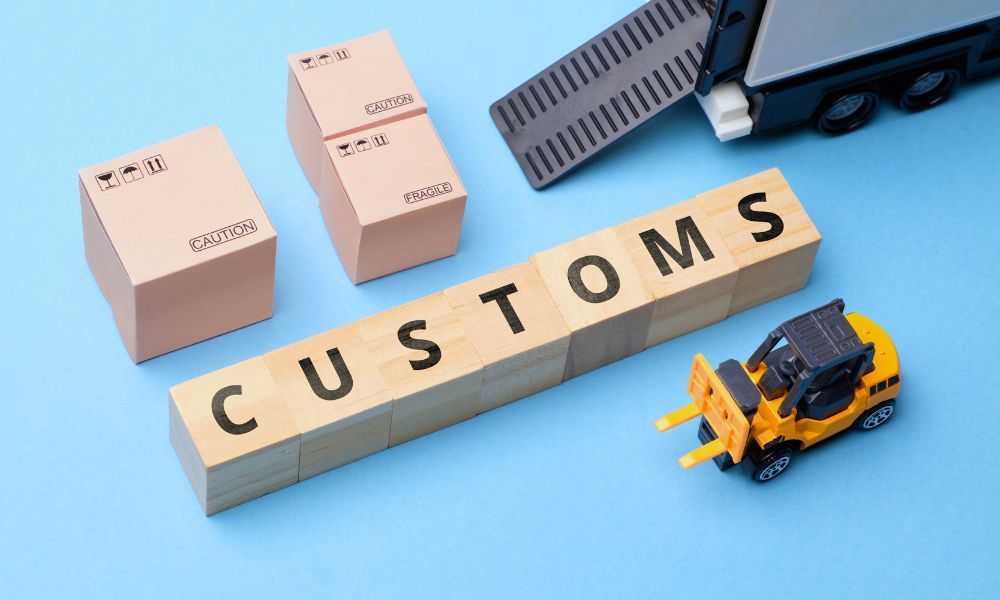
It’s also crucial to ensure that your exported goods are not on Vietnam's list of prohibited or restricted exports. Besides, don’t forget the pre-shipment inspection or certificates for some products, such as sanitary certificates for food items.
Next, remember that Japan has its own set of stringent import regulations designed to protect its economy and citizens.
As we’ve learned the intricate custom regulations for shipping from Vietnam to Japan, we now turn our attention to the equally critical aspects of packaging and labeling. Mastering these elements is not just about ensuring your shipment arrives intact; it's about crafting a seamless journey from sender to receiver, reflecting the care and quality your business stands for.
Imagine each package as a traveler, embarking on a voyage from the bustling ports of Vietnam to the vibrant shores of Japan. The journey, filled with transitions and handling, demands robust packaging - the traveler's armor against the perils of transport. Hence, it’s important for you to take note of the following:
When importing goods from Vietnam to Japan, your labels serve as the guiding stars for your shipment, navigating through the complexities of international logistics and customs clearances. Hence, besides careful packaging, it’s also crucial to label your parcels properly:
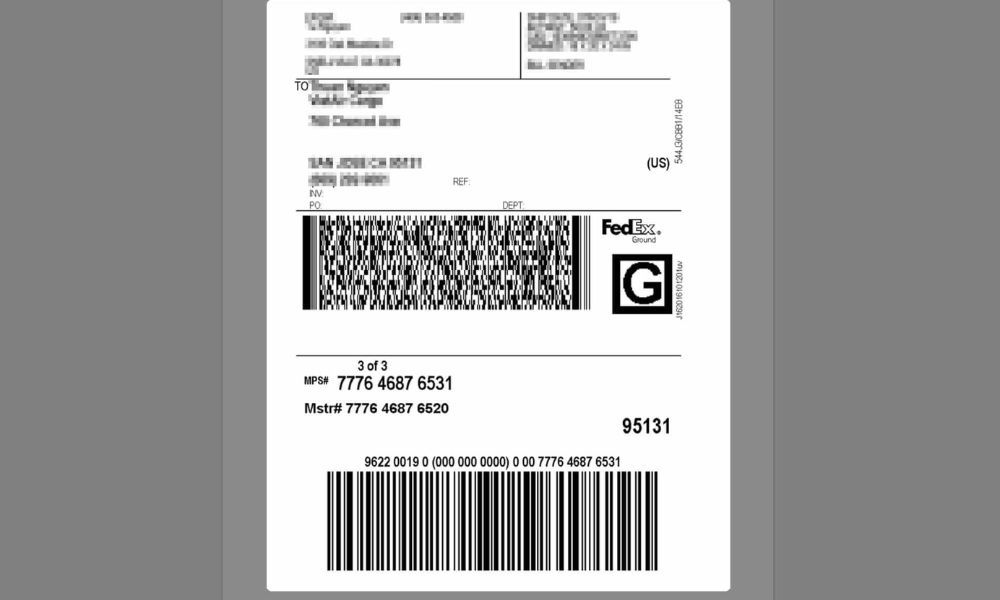
Your goods are packed, labeled, and sent on their way; but the journey isn't over yet. Here comes the final leg of the shipping process: tracking your shipment.
When you ship from Vietnam to Japan, your package will pass through multiple checkpoints, from port authorities to customs, and undergo various types of handling. Keeping track of your package when shipping from Vietnam to Japan ensures you stay informed and prepared for any potential delays or issues along the way.
So how to track your shipment from Vietnam to Japan properly? Follow the steps below:
Now that we’ve covered every step of the shipping process—from estimating costs and choosing methods, to navigating customs, packing, shipping, and tracking—it’s clear that managing everything yourself can be quite overwhelming. That’s where trusted shipping companies like EFEX can step in. With the right partner, all the complexities of cross-border shipping are handled for you, so you can focus on growing your business while your goods move smoothly from Vietnam to Japan.
But with a sea of available options, what would be your suitable pick? We’ve listed below the top companies for shipping from Vietnam to Japan for your reference:
EFEX is a leading logistics provider with a deep understanding of cross-border shipping from Vietnam in general and shipping from Vietnam to Japan in particular. With years of experience in the Vietnamese logistics landscapes, we provide tailored shipping solutions that ensure compliance with local regulations and seamless delivery. Besides, our strategic partnerships with international carriers allow us to offer competitive rates and flexible shipping options, from air and sea freight to express services.
Our top services:
| Pros | Cons |
|
|
All in all, EFEX is ideal for eCommerce merchants, small to medium-sized businesses, and large enterprises looking for a partner to handle their entire shipping process. Whether you need fast air freight, cost-effective sea freight, or a comprehensive logistics solution, EFEX provides tailored services to meet your specific requirements.
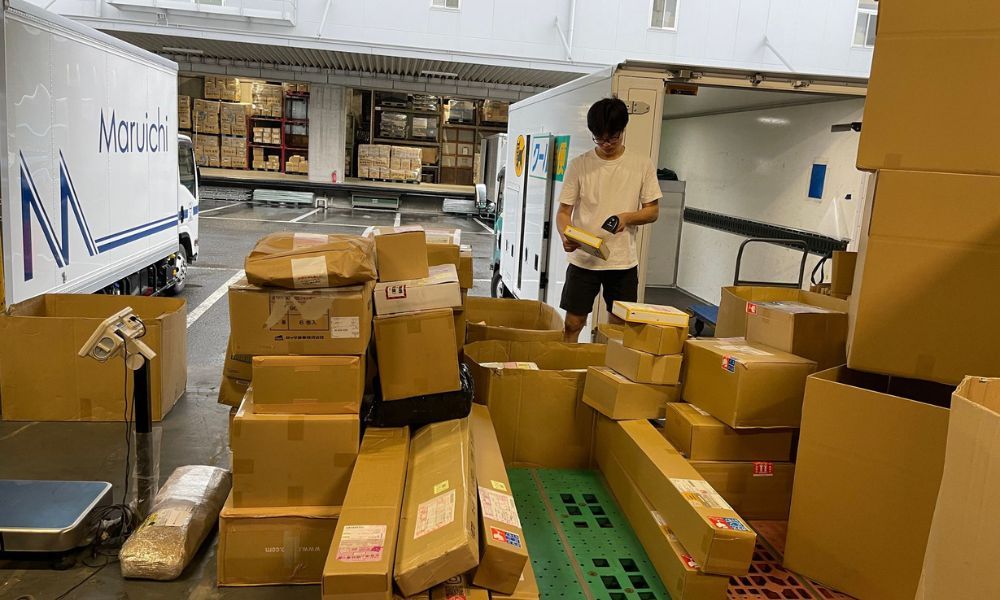
Next on our list of top Vietnam shipping companies, DHL Express is a global leader in logistics with a solid presence in both Vietnam and Japan. Known for its reliable and fast services, DHL is perfect for businesses needing quick deliveries and comprehensive tracking.
Top services provided:
| Pros | Cons |
|
|
If speed is your top priority, DHL is ideal for businesses needing fast, reliable deliveries for time-sensitive shipments or high-value goods.
If you are looking for a Japanese-based company, then this option is for you! Nippon Express is one of Japan’s largest logistics companies, offering a wide range of shipping services for businesses across Asia. With a strong presence in Japan, they provide efficient solutions for businesses shipping large volumes of goods.
Top services provided:
| Pros | Cons |
|
|
So who should you Nippon Express? This Vietnam shipping company is best suited for businesses shipping large quantities of goods, especially those utilizing sea freight. Their extensive warehousing services make them a great choice for companies with regular, large-scale shipping needs.
While Nippon Express is more popular (and booked) in Japan, FedEx is a globally recognized logistics provider known for its reliability and speed. With strong international coverage, FedEx is an excellent choice for businesses that need a dependable shipping partner for air freight and express services.
Top services provided:
| Pros | Cons |
|
|
To cut it short, FedEx is perfect for businesses needing fast and reliable air freight or courier services. Besides, it is especially suited for high-value goods or urgent shipments where speed and tracking are crucial.
Last but not least, you cannot miss out UPS–another global leader in logistics, offering a comprehensive range of services, including air and sea freight, courier services, and supply chain management. With a strong presence in both Vietnam and Japan, UPS provides reliable delivery solutions for businesses of all sizes.
Services Provided:
| Pros | Cons |
|
|
With these in mind, UPS is ideal for businesses needing end-to-end logistics solutions or those with complex supply chains. If you’re looking for a global provider with a broad range of services, UPS is a solid option for both air and sea freight.
And that's everything you should know about shipping from Vietnam to Japan! However, before you set sail—or take to the skies—with your shipment from Vietnam to Japan, it's crucial to navigate the seas of regulations regarding prohibited and restricted items.
Japan, known for its stringent customs enforcement, has clear guidelines to protect its citizens and ecosystem. Hence, you should familiarize yourself with these restrictions to avoid delays, fines, or even confiscation of your goods. Some common categories of prohibited items include:
For a comprehensive list of prohibited and restricted items, click here for more details.
Shipping costs vary depending on factors like shipment size, weight, destination, and chosen shipping method. For accurate quotes, it's best to contact a shipping provider like EFEX and provide details about your shipment.
While shipping costs from Vietnam to Japan can vary based on several factors, sea freight is generally the most cost-effective option for large shipments. If you are shipping smaller packages, consider courier services for a more time-sensitive journey.
For urgent shipments, air freight typically offers the fastest transit times. However, the cost to ship from Vietnam to Japan by air is usually higher. Courier services can also be fast, especially for smaller packages, but their speed often depends on the specific courier company and their local network.
>> Learn more:
All in all, shipping from Vietnam to Japan presents a unique set of challenges and opportunities for businesses looking to expand into the Japanese market. By understanding the various methods, costs, and regulations involved, you can choose the most suitable shipping strategy for your needs and make the most out of the Vietnam-Japan shipments.
Ready to ship from Vietnam to Japan? Now's the time! And when you do, you can trust our EFEX team to have your back. With years of expertise in the field, we'll make your Vietnam-Japan shipping journey feel like a breeze — no stress, no hassle, just results.
Feel free to contact us for more information and reasonable deals for shipping from Vietnam to Japan!


